Introduction:
In today’s world, we’re all looking for ways to improve our health and well-being. One area that’s gaining a lot of attention is skincare. More and more people are turning to organic skincare products for their natural ingredients and potential health benefits.
If you’re considering making the switch to organic skincare, you’re in good company. In fact, the organic skincare market is booming, with sales expected to reach $25.3 billion by 2025.
But what exactly is organic skincare, and why is it so popular?
What is Organic Skincare?
Organic skincare products are made with natural ingredients that are grown without the use of synthetic pesticides, herbicides, or fertilizers. These products are also free of artificial colors, fragrances, and preservatives.
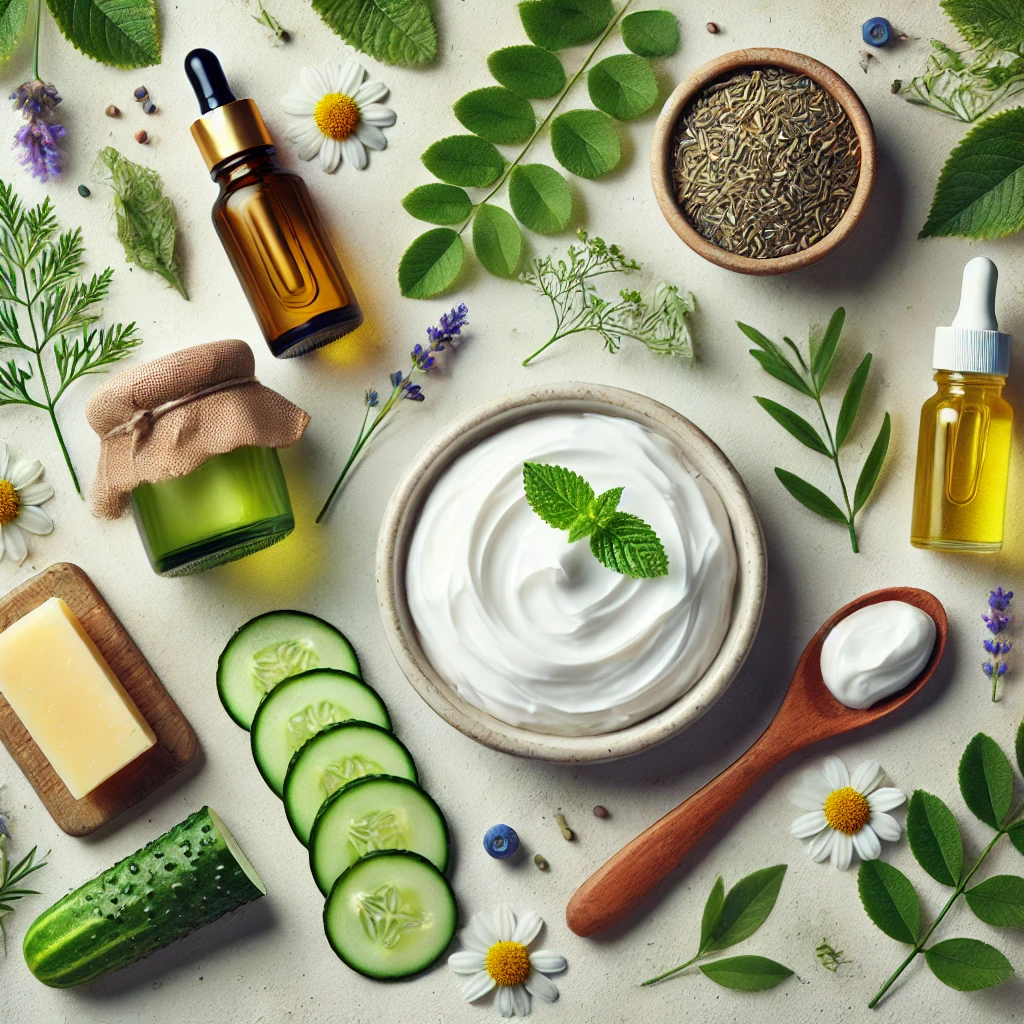
Benefits of Organic Skincare
There are many benefits to using organic skincare products. Here are a few of the most notable:
- Gentler on your skin: Organic skincare products are typically free of harsh chemicals that can irritate your skin. This makes them a good choice for people with sensitive skin.
- More natural ingredients: Organic skincare products are packed with natural ingredients that are good for your skin. These ingredients include antioxidants, vitamins, and minerals.
- Fewer side effects: Because organic skincare products are free of harsh chemicals, they are less likely to cause side effects such as redness, irritation, or allergic reactions.
- Better for the environment: Organic skincare products are made with sustainable ingredients that are better for the environment.
- Improved skin health: Studies have shown that organic skincare products can help to improve skin health by reducing wrinkles, fine lines, and acne.
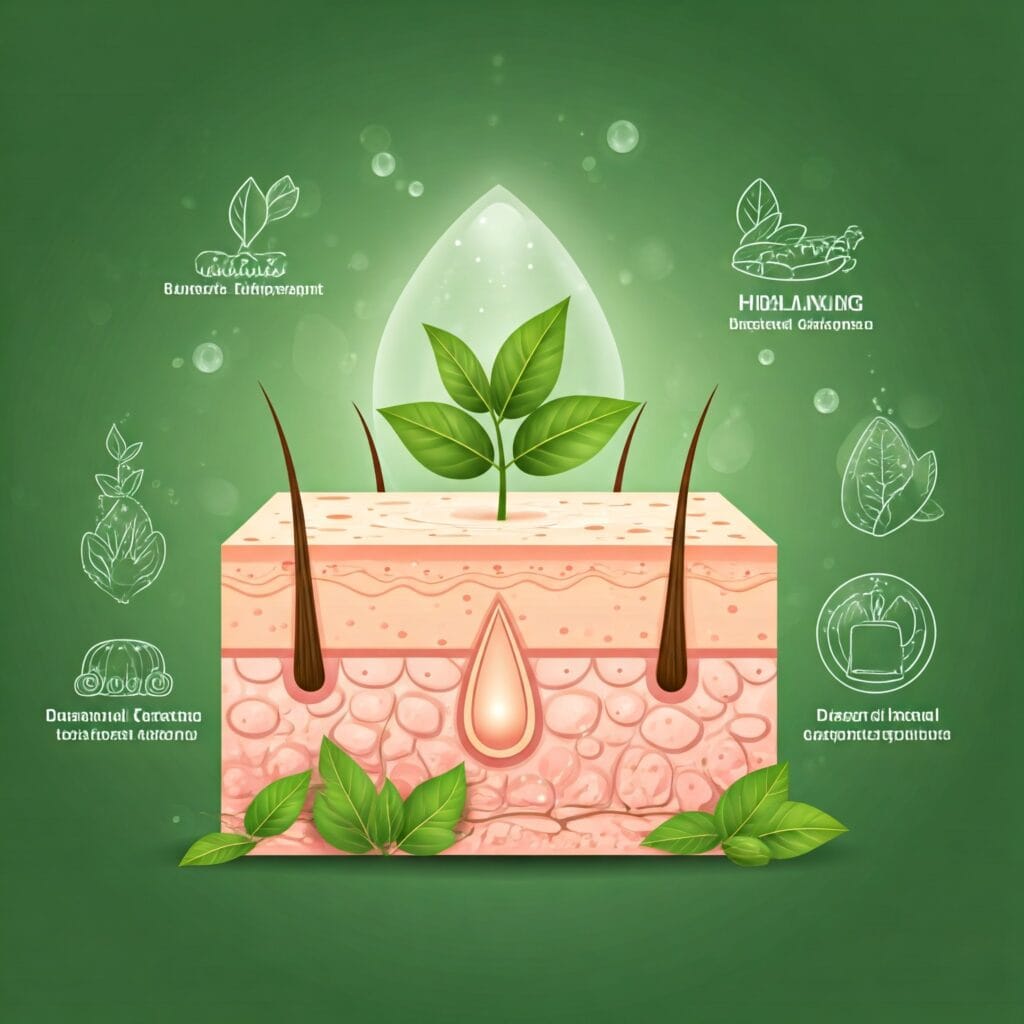
How to Choose Organic Skincare Products
When choosing organic skincare products, there are a few things to keep in mind:
- Look for the USDA Organic seal. This seal certifies that the product contains at least 95% organic ingredients.
- Read the label carefully. Look for products that are free of harsh chemicals such as parabens, sulfates, and phthalates.
- Do your research. Read reviews of different organic skincare products to find the best one for your needs.

Tips for Using Organic Skincare Products
- Start slow. When you first start using organic skincare products, it’s important to start slowly. This will help your skin to adjust to the new ingredients.
- Use a cleanser, toner, and moisturizer. These three products are the basics of any good skincare routine.
- Don’t forget about sunscreen. Sun protection is essential for healthy skin, even if you use organic skincare products.
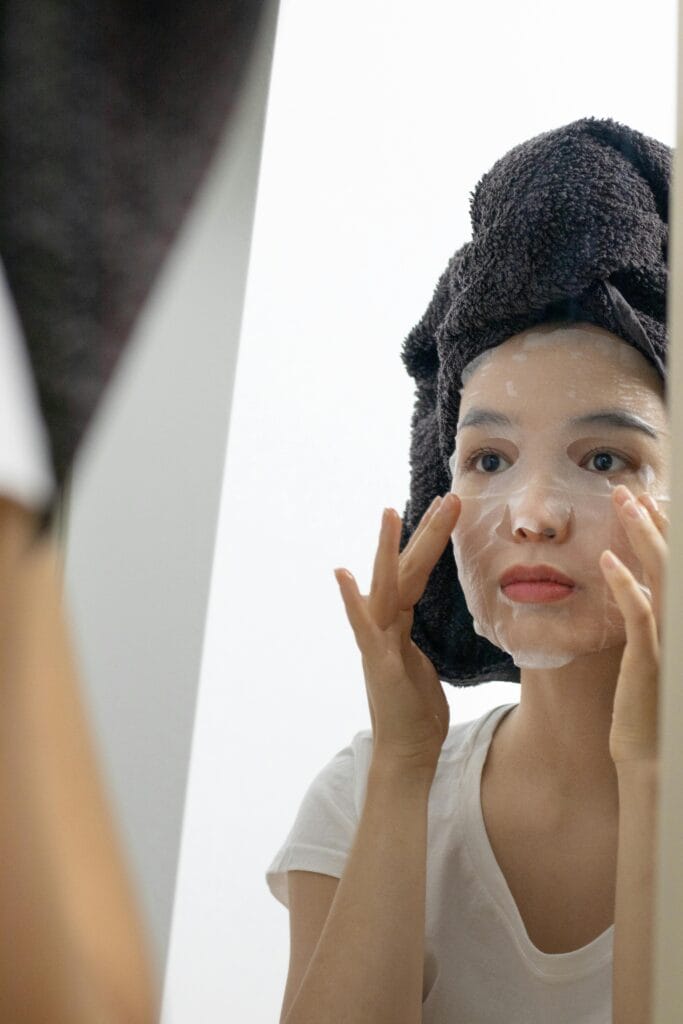
Key Ingredients to Look for in Organic Skincare
- Aloe Vera: Aloe vera is a succulent plant that has been used for centuries for its healing properties. Aloe vera is rich in vitamins, minerals, and antioxidants, which can help to soothe and hydrate the skin. Aloe vera is also effective at reducing inflammation, making it a good choice for people with acne or other skin conditions.
- Tea Tree Oil: Tea tree oil is an essential oil that is derived from the leaves of the Melaleuca alternifolia tree. Tea tree oil has antibacterial and anti-inflammatory properties, making it effective at treating acne and other skin infections. Tea tree oil can also be used to soothe itchy skin and reduce inflammation.
- Shea Butter: Shea butter is a natural fat that is extracted from the nuts of the shea tree. Shea butter is rich in vitamins and fatty acids, which can help to moisturize and nourish the skin. Shea butter is also effective at reducing inflammation and protecting the skin from the sun’s harmful rays.
- Vitamin C: Vitamin C is a powerful antioxidant that can help to protect the skin from damage. Vitamin C can also help to brighten the skin and reduce the appearance of wrinkles. Vitamin C is found in many fruits and vegetables, including oranges, strawberries, and spinach.
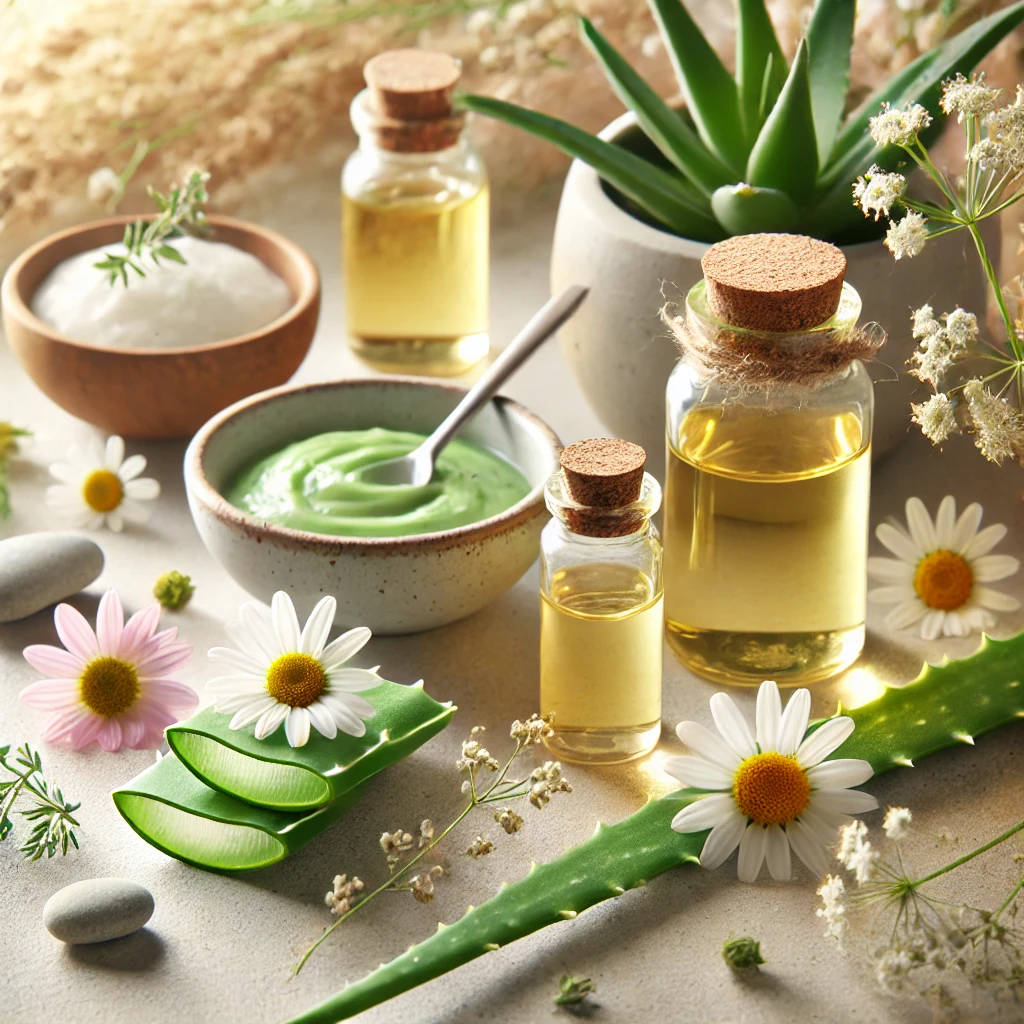
In addition to these key ingredients, there are many other beneficial ingredients that can be found in organic skincare products. Some of these ingredients include:
- Jojoba oil: Jojoba oil is a natural oil that is similar to the sebum produced by our skin. Jojoba oil can help to moisturize the skin and keep it balanced.
- Rosehip oil: Rosehip oil is a natural oil that is rich in vitamins and fatty acids. Rosehip oil can help to reduce the appearance of scars and wrinkles.
- Green tea extract: Green tea extract is a natural antioxidant that can help to protect the skin from damage. Green tea extract can also help to reduce inflammation and improve the appearance of the skin.
When choosing organic skincare products, it is important to read the labels carefully and look for products that contain these beneficial ingredients. You should also avoid products that contain harsh chemicals, such as parabens and phthalates.
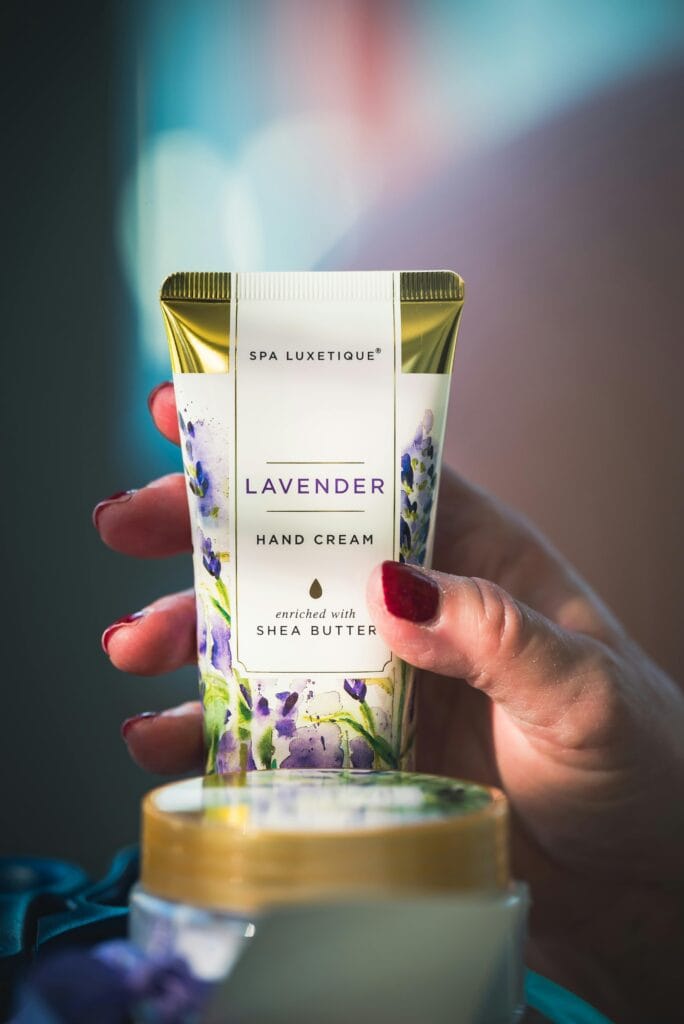
Here are some additional tips for choosing organic skincare products:
- Look for products that are certified organic by a reputable organization, such as the USDA.
- Choose products that are formulated for your specific skin type.
- Look for products that are free of harsh chemicals, such as parabens and phthalates.
- Test the product on a small area of skin before using it all over your face.
By following these tips, you can find organic skincare products that are safe, effective, and good for your skin.
Please note that this is just a general list of ingredients and benefits. It is always best to consult with a dermatologist or other qualified healthcare professional before using any new skincare product.
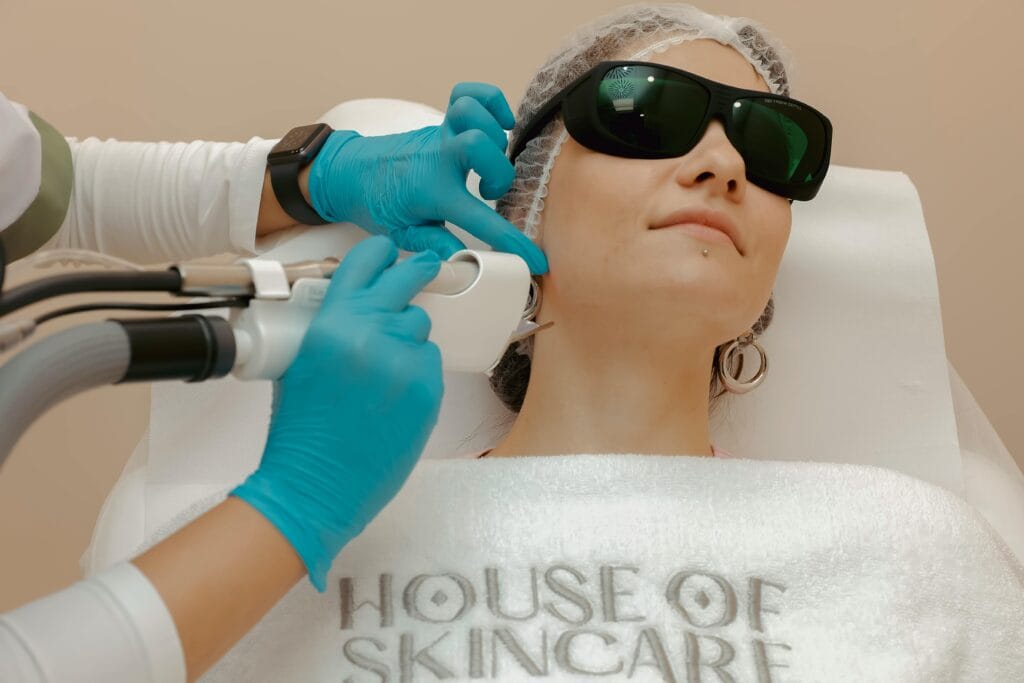
Top-rated organic skincare products:
Cleansers
Tata Harper Regenerating Cleanser
A daily exfoliating treatment that buffs and polishes the skin with natural BHA and apricot microspheres, leaving the complexion smooth and radiant. Price: $88.
Kora Organics Gentle Cleanser
A soap-free, foaming cleanser that gently removes impurities without stripping the skin, suitable for all skin types. Price: $30.
OSEA Ocean Cleanser
A mineral-rich gel cleanser that removes surface impurities and excess oils, leaving skin feeling refreshed and hydrated. Price: $48.
Moisturizers
Josie Maran Whipped Argan Oil Face Butter
A deeply hydrating moisturizer infused with argan oil, shea butter, and watermelon seed oil to nourish and plump the skin. Price: $42.
Kora Organics Hydrating Moisturizer
An ultra-hydrating cream enriched with noni extract, rosehip oil, and green tea to support a radiant complexion. Price: $48.
Tata Harper Water-Lock Moisturizer
A lightweight, silicone-free moisturizer that provides sustained hydration with hyaluronic acid and orange peptides. Price: $68.
Serums
True Botanicals Vitamin C Booster
A potent, powdered vitamin C treatment that brightens skin and reduces the appearance of dark spots and wrinkles. Price: $90.
OSEA Hyaluronic Sea Serum
A hydrating serum that combines hyaluronic acid and seaweed to plump and firm the skin. Price: $88.
Kora Organics Noni Night AHA Resurfacing Serum
An overnight serum with natural AHAs and BHAs to refine skin texture and promote a radiant complexion. Price: $72.
Sunscreens
Josie Maran Argan Daily Moisturizer SPF 47
A lightweight, non-greasy sunscreen that provides broad-spectrum protection while nourishing the skin with argan oil. Price: $36.
Kora Organics Daily Ritual SPF 30
A hydrating sunscreen that offers broad-spectrum protection with non-nano zinc oxide, suitable for all skin types. Price: $60.
Alpyn Beauty PlantGenius Melt Moisturizer SPF 40
A multitasking moisturizer with mineral SPF 40 that hydrates and protects the skin using wildcrafted actives. Price: $60.
These products are crafted by reputable organic skincare brands and have received positive reviews for their efficacy and quality. Please note that prices are subject to change, and it’s advisable to check the latest information from the respective retailers.
How to Build a Natural Skincare Routine
Morning Routine
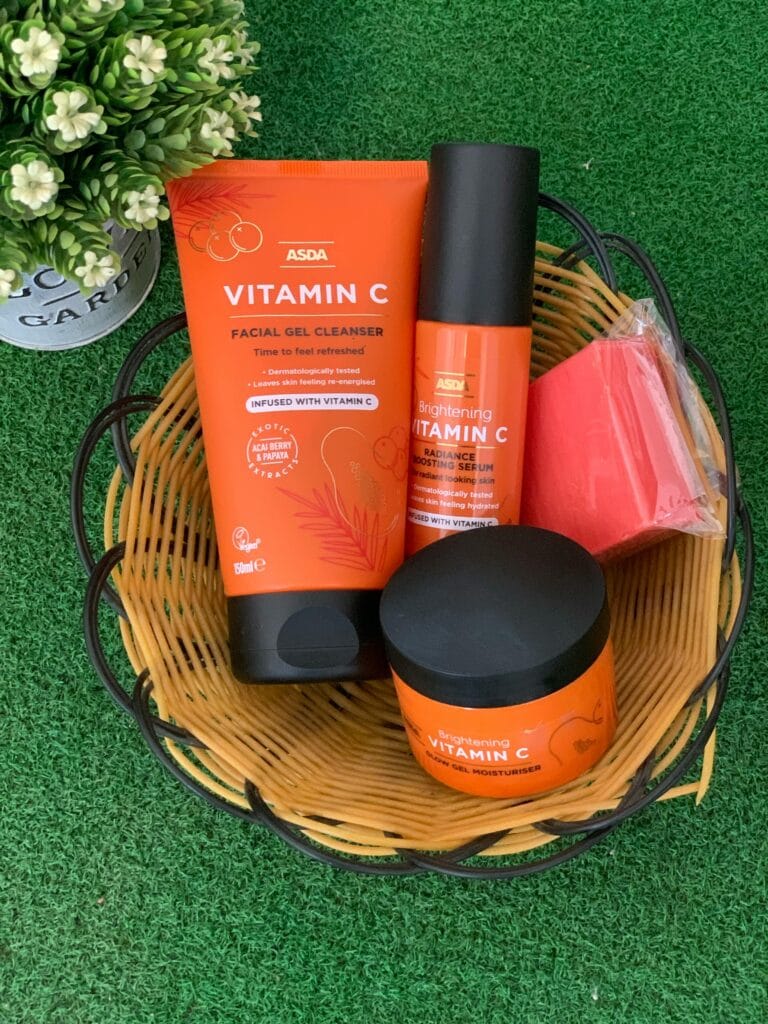
Vitamin C Serum: Apply a vitamin C serum to your face. Vitamin C is a powerful antioxidant that can help to brighten your skin and protect it from sun damage.
Sunscreen: Finish your morning routine with a natural sunscreen. Sunscreen is essential for protecting your skin from the sun’s harmful rays. Look for a sunscreen with an SPF of 30 or higher.
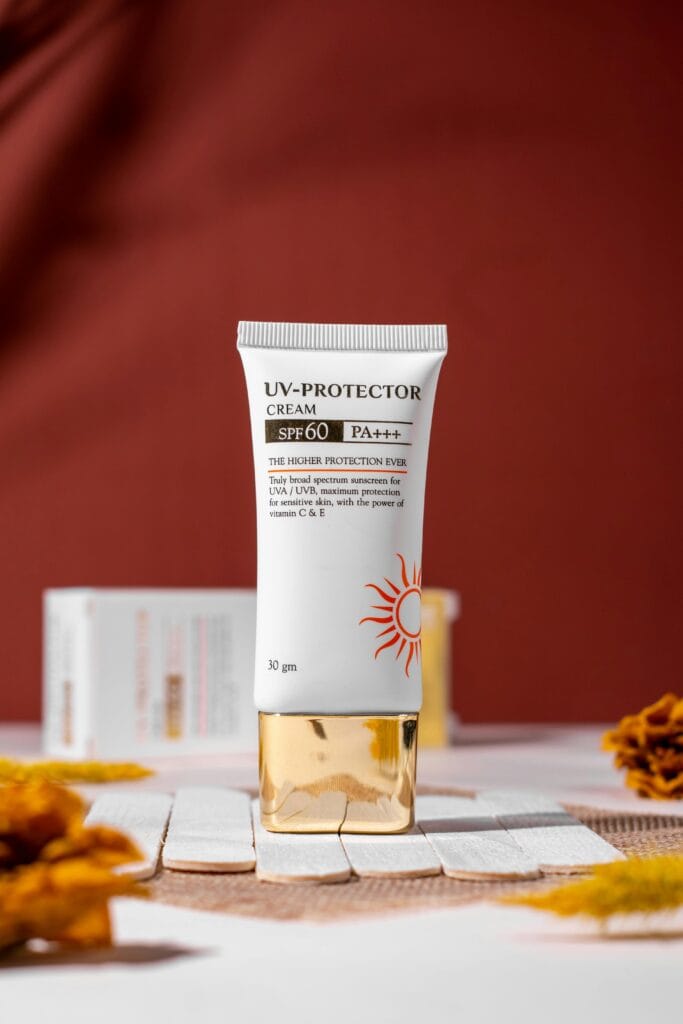
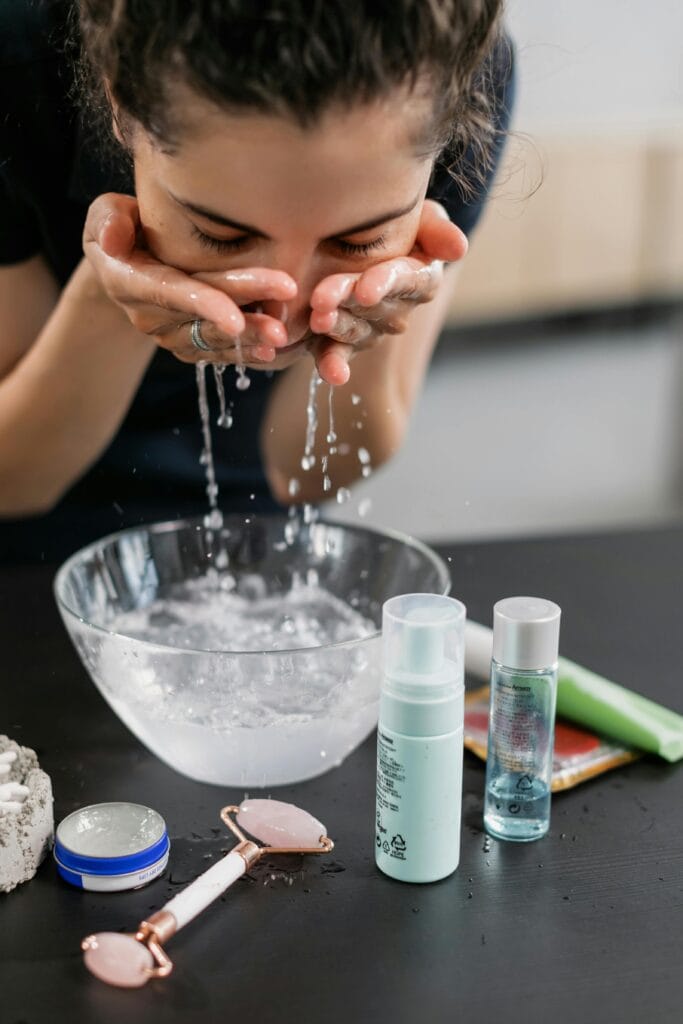
Gentle Cleanser: Start your day by washing your face with a gentle, natural cleanser. This will remove any dirt, oil, or bacteria that may have accumulated overnight. Look for cleansers with natural ingredients like aloe vera, chamomile, or jojoba oil.
Evening Routine
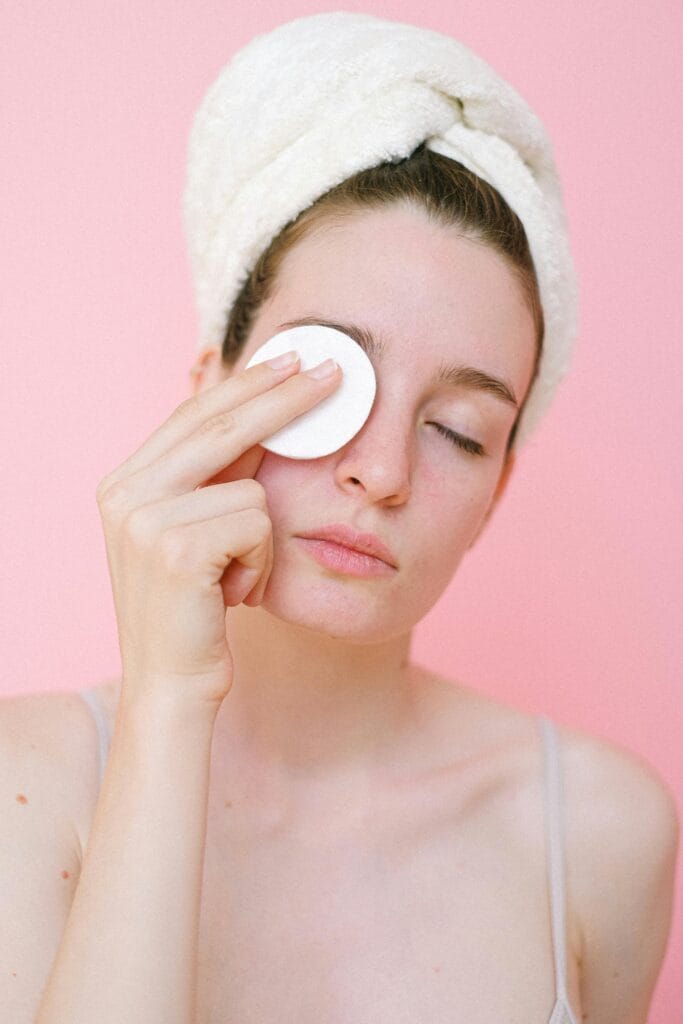
Makeup Remover: If you’re wearing makeup, remove it with a gentle, natural makeup remover. Look for makeup removers that are oil-free and non-comedogenic.
Hydrating Cleanser: Wash your face with a hydrating cleanser. This will remove any dirt, oil, or bacteria that may have accumulated during the day.
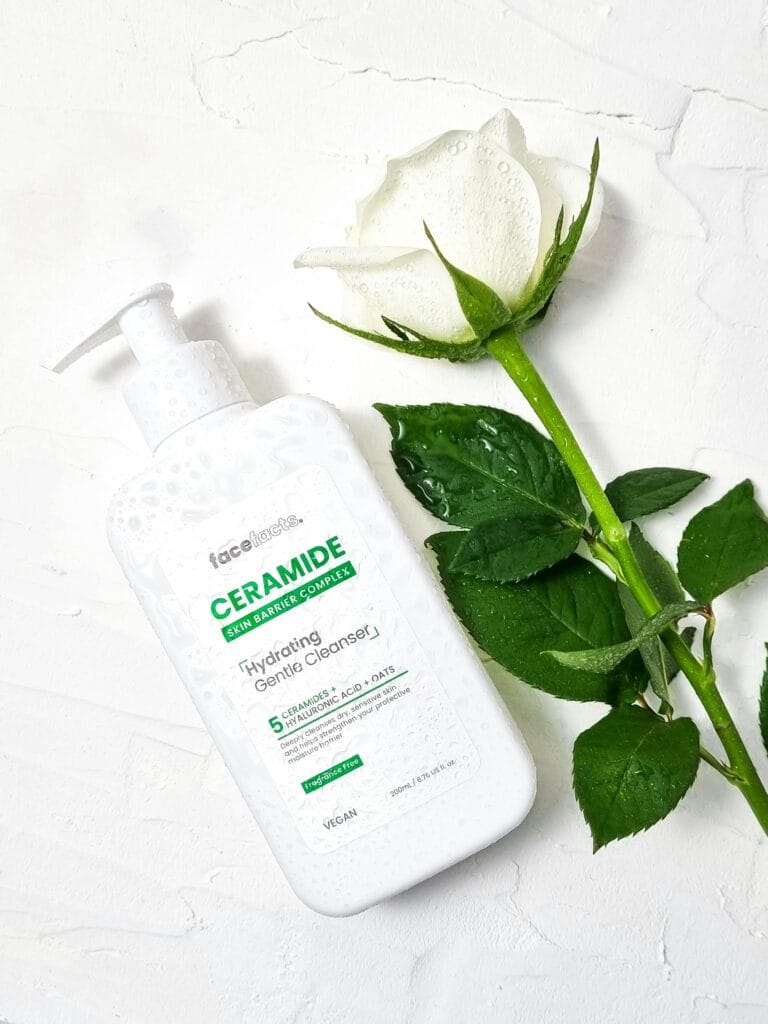
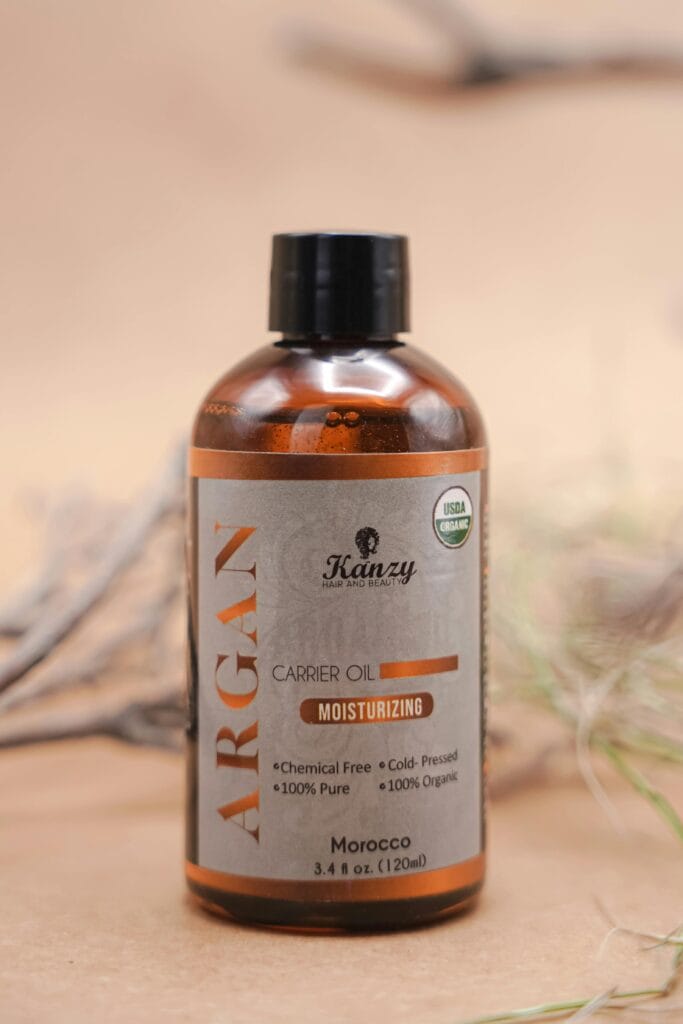
Moisturizer: Apply a natural moisturizer to your face. This will help to keep your skin hydrated and healthy. Look for moisturizers with natural ingredients like shea butter, coconut oil, or jojoba oil.
Weekly Add-Ons
Exfoliation: Exfoliate your skin once or twice a week. This will help to remove dead skin cells and reveal brighter, smoother skin. Look for exfoliants with natural ingredients like sugar, salt, or coffee grounds.
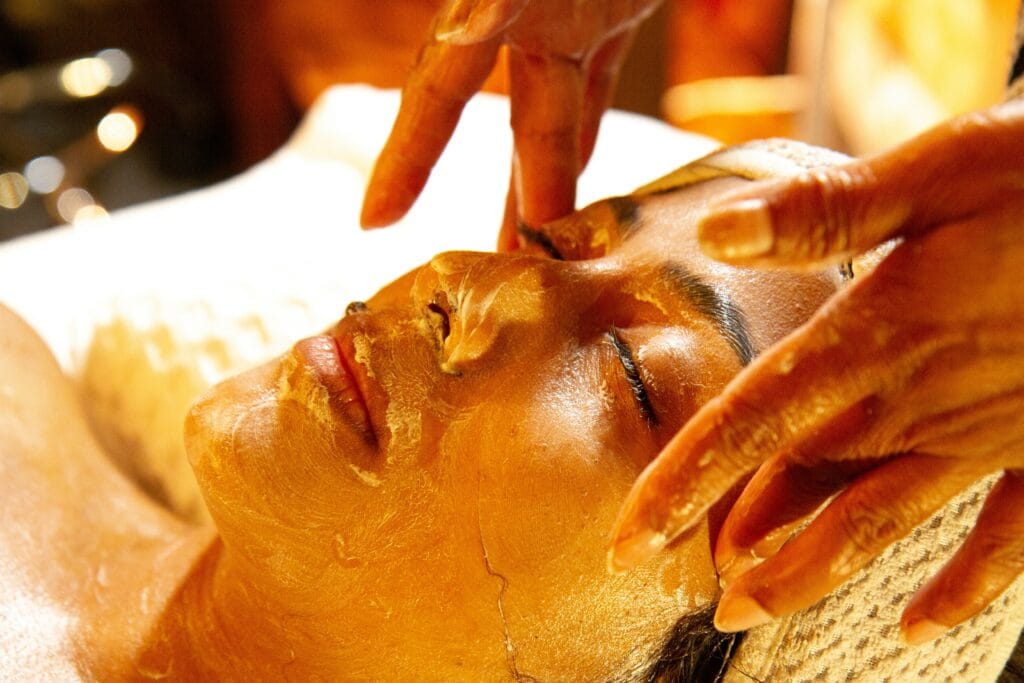
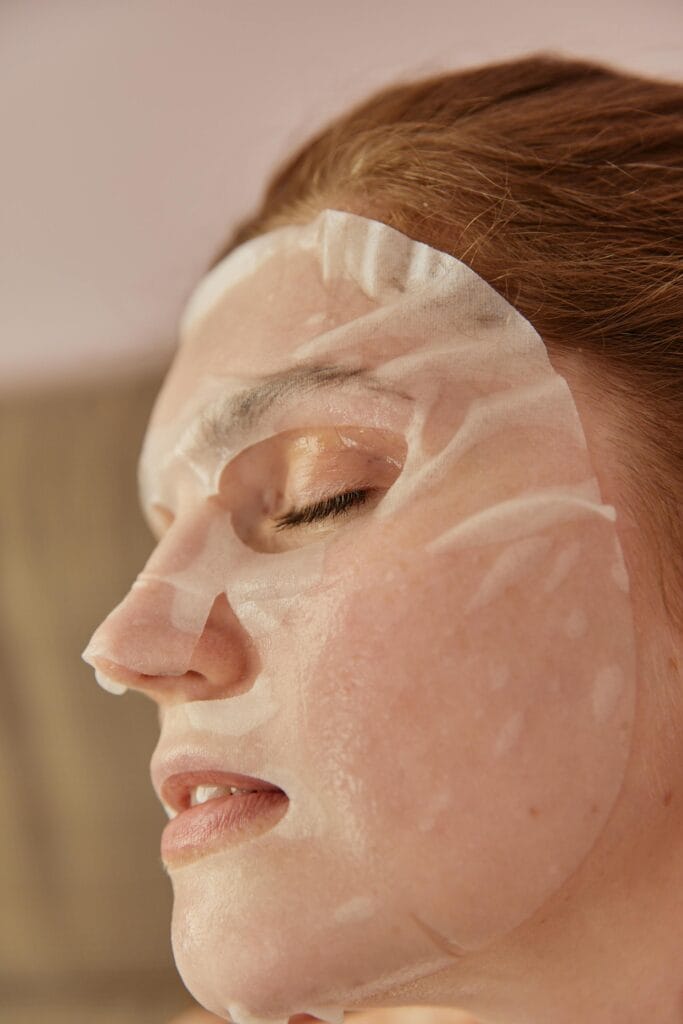
Masks: Apply a natural face mask once or twice a week. This will help to nourish and hydrate your skin. Look for masks with natural ingredients like clay, honey, or yogurt.
Additional Tips
- Be patient. It may take several weeks or even months to see results from a natural skincare routine.
- Don’t be afraid to experiment. There are many different natural skincare products available, so find what works best for you.
- Listen to your skin. If you’re experiencing any irritation, stop using the product and talk to a dermatologist.
- Be consistent. The best way to get results from a natural skincare routine is to be consistent with it.
By following these tips, you can build a natural skincare routine that will help you achieve healthy, glowing skin.

Common Myths About Organic Skincare
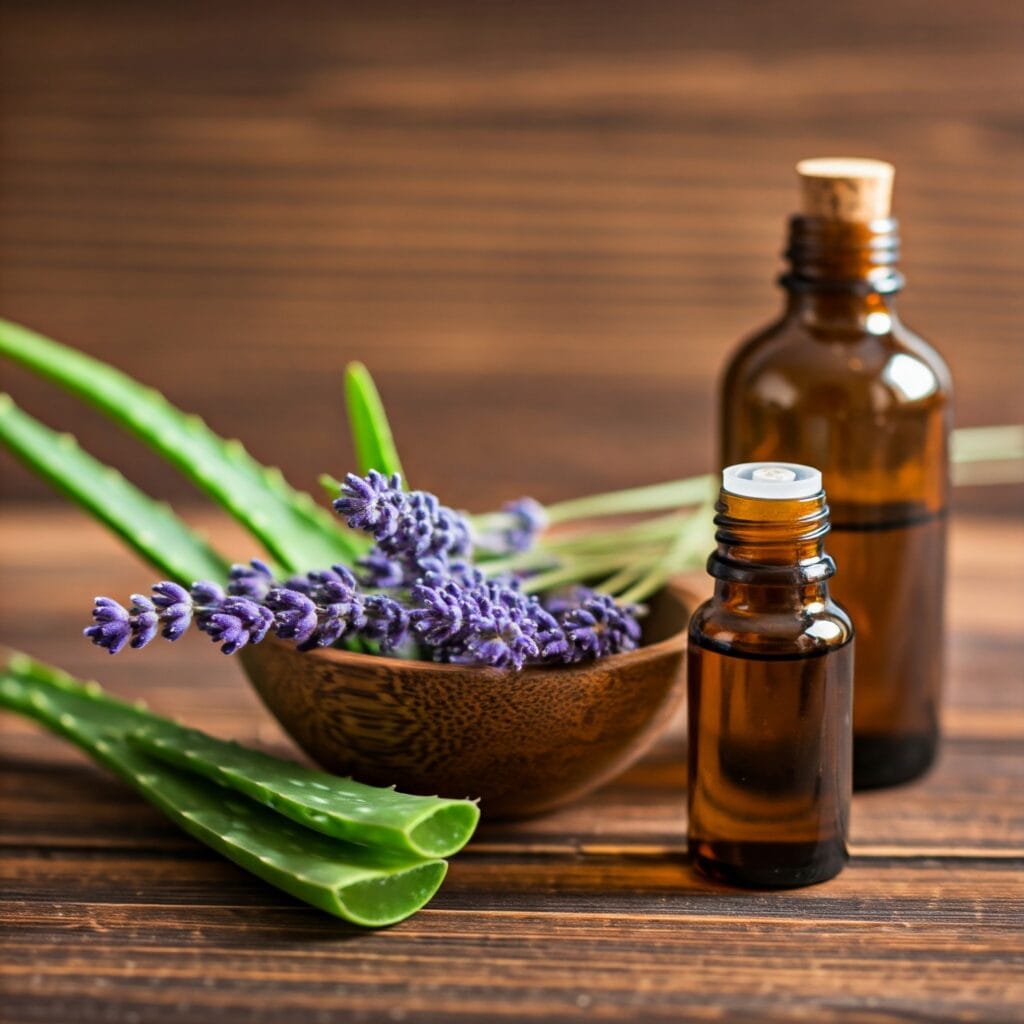
Myth 1: Organic products aren’t effective.
Reality: This is a common misconception. Many organic skincare products are formulated with potent natural ingredients that can be highly effective. For example, studies have shown that organic vitamin C serums can be just as effective as their synthetic counterparts in brightening the skin and reducing the appearance of wrinkles.

Myth 2: Natural equals safe.
Reality: While natural ingredients are often gentler on the skin than synthetic ones, it’s important to remember that not all natural ingredients are safe for everyone. Some natural ingredients can be irritating or even allergenic. For example, essential oils can be irritating to sensitive skin and should be avoided by pregnant women. It’s always important to patch test any new skincare product, even if it’s organic, to make sure it doesn’t cause any adverse reactions.
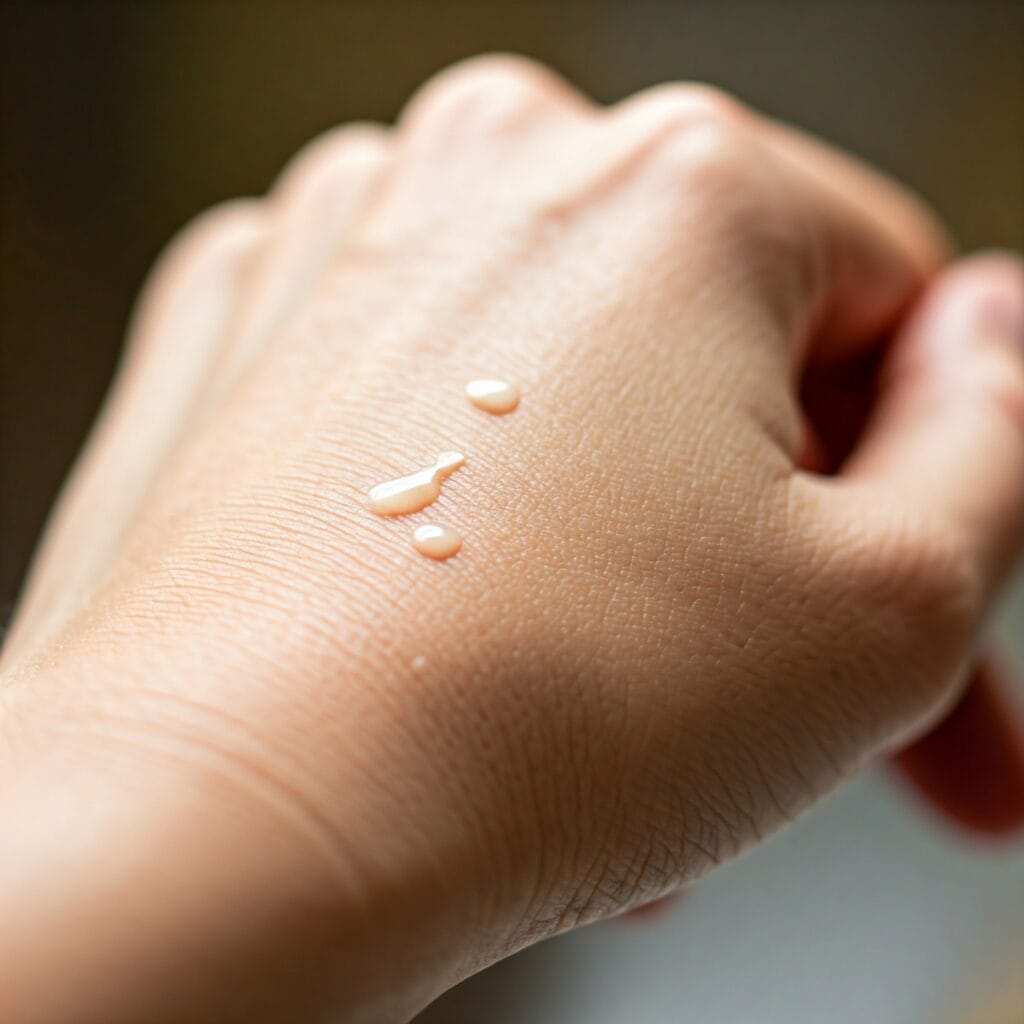
Here are some additional tips for choosing and using organic skincare products:
- Look for products that are certified organic by a reputable organization, such as the USDA.
- Read the labels carefully and avoid products that contain harsh chemicals, such as parabens and phthalates.
- Start slow when introducing new products to your routine.
- Listen to your skin. If you experience any irritation, stop using the product and consult with a dermatologist.
By following these tips, you can find organic skincare products that are safe, effective, and good for your skin.
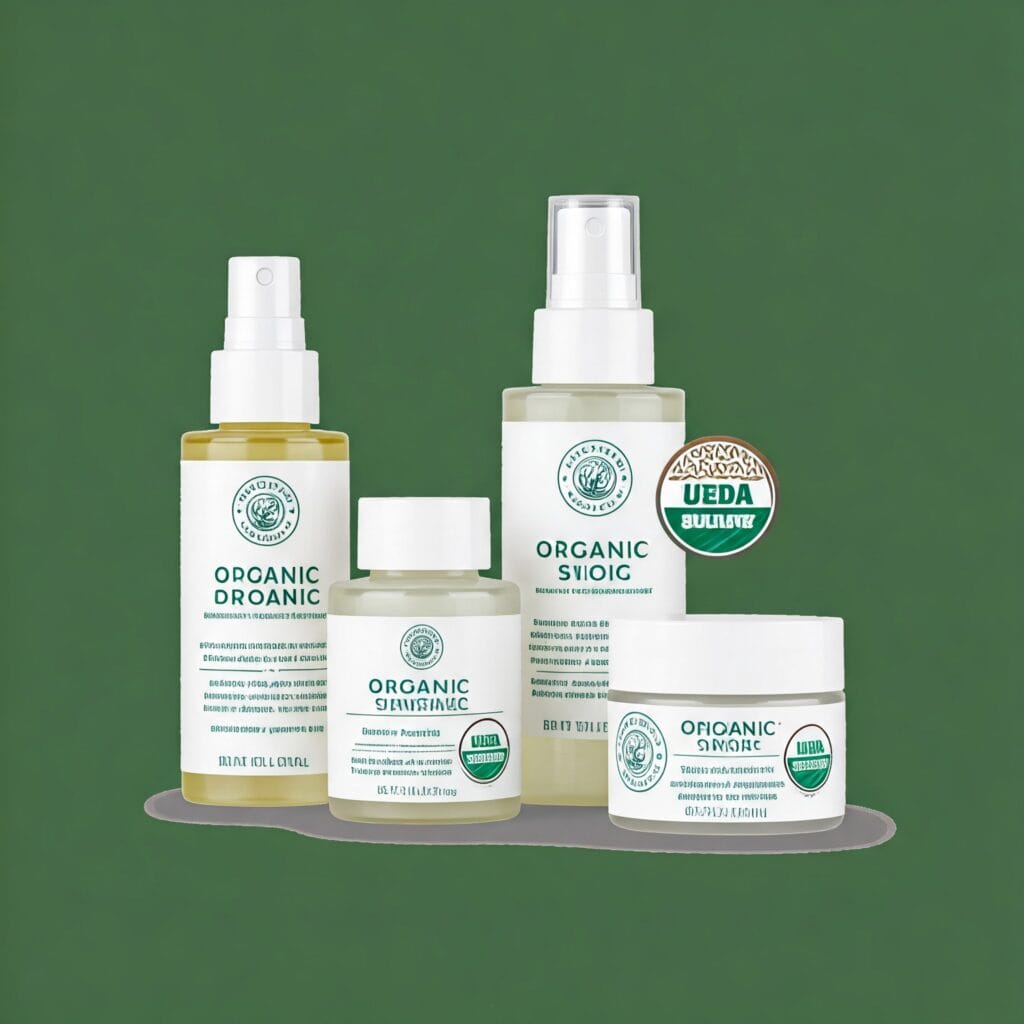
Quiz: Find Your Perfect Organic Skincare Match
Question 1: What is your primary skin concern?
- A: Acne-prone skin
- B: Dry, dehydrated skin
- C: Sensitive skin
- D: Aging skin
Question 2: What is your skin type?
- A: Normal
- B: Oily
- C: Dry
- D: Combination
Question 3: What is your preferred product format?
- A: Creams and lotions
- B: Oils and serums
- C: Gels and foams
Question 4: How important is sustainability to you?
- A: Very important
- B: Somewhat important
- C: Not very important
Question 5: What is your budget for skincare products?
- A: Under $20
- B: $20-$50
- C: $50-$100
- D: Over $100
Answer Key:
- Mostly As: You have acne-prone skin. Look for organic cleansers with tea tree oil or salicylic acid, and lightweight, non-comedogenic moisturizers.
- Mostly Bs: You have dry, dehydrated skin. Look for organic products with hydrating ingredients like hyaluronic acid, shea butter, and jojoba oil.
- Mostly Cs: You have sensitive skin. Look for organic products with gentle, hypoallergenic ingredients like aloe vera, chamomile, and oat extract.
- Mostly Ds: You have aging skin. Look for organic products with anti-aging ingredients like retinol, vitamin C, and peptides.
Sign up for our newsletter to get the latest tips and deals on organic beauty.
Additional Tips:
- You can use a quiz tool like Typeform or Google Forms to create an interactive quiz for your readers.
- You can offer a discount code or free gift to readers who complete the quiz.
- You can promote the quiz on social media and other channels to reach a wider audience.
Testimonials or Case Studies
Sarah’s Story: From Acne to Clear, Glowing Skin
Sarah had struggled with acne for years. She tried countless over-the-counter products, but nothing seemed to work. She was frustrated and felt like she would never have clear skin.
One day, Sarah decided to try organic skincare. She started using a gentle cleanser, a lightweight moisturizer, and a vitamin C serum. Within a few weeks, she noticed a significant improvement in her skin. Her acne was clearing up, and her skin was looking brighter and more radiant.
Sarah was so impressed with the results that she decided to switch all of her skincare products to organic. She now uses a variety of organic products, including a face oil, a night cream, and a sunscreen. She is so happy with her skin now that she can’t imagine going back to conventional skincare.
Here are some before-and-after photos of Sarah’s skin:
John’s Story: From Dry, Flaky Skin to Hydrated, Supple Skin
John had always had dry, flaky skin. He tried a variety of moisturizers, but nothing seemed to help. He was constantly embarrassed by his dry, flaky skin.
One day, John decided to try organic skincare. He started using a hydrating cleanser, a face oil, and a night cream. Within a few weeks, he noticed a significant improvement in his skin. His skin was no longer dry or flaky, and it felt soft and supple.
John was so impressed with the results that he decided to switch all of his skincare products to organic. He now uses a variety of organic products, including a sunscreen and a face mask. He is so happy with his skin now that he can’t imagine going back to conventional skincare.
Here are some before-and-after photos of John’s skin:
Additional Tips:
- You can find more testimonials and case studies on the websites of organic skincare brands.
- You can also ask your friends and family members for their recommendations.
- You can join online forums and communities to learn more about organic skincare.
Remember, everyone’s skin is different, so it’s important to find the right products for you. But with a little trial and error, you can find an organic skincare routine that will help you achieve healthy, glowing skin.
Conclusion:
In conclusion, switching to organic skincare is a great way to improve your skin health and well-being. Organic skincare products are made with natural ingredients that are gentle on your skin and free of harsh chemicals. They can also be more effective than conventional skincare products at treating a variety of skin concerns.
Call-to-Action:
If you’re ready to make the switch to organic skincare, we encourage you to start with the recommended products in this blog post. We have also included a list of additional resources to help you learn more about organic skincare.
Discover the best organic skincare deals today!
[Affiliate Link]
Additional Resources:
- The Benefits of Organic Skincare
- How to Choose Organic Skincare Products
- Tips for Using Organic Skincare Products
We hope this blog post has helped you learn more about the benefits of organic skincare. If you have any questions, please feel free to leave a comment below.
Disclaimer: This blog post is for informational purposes only and should not be considered medical advice. Always consult 1 with a qualified healthcare professional before making any changes to your 2 skincare routine.






